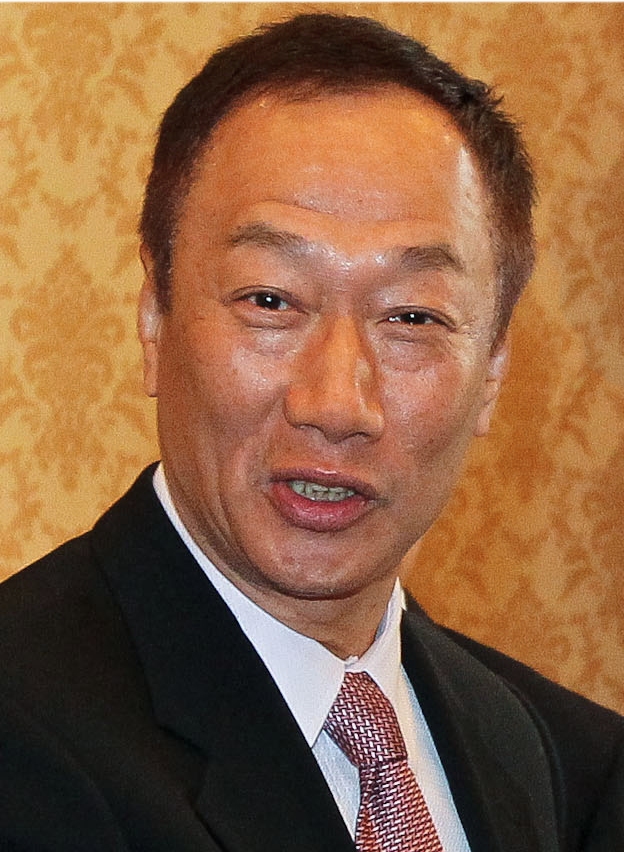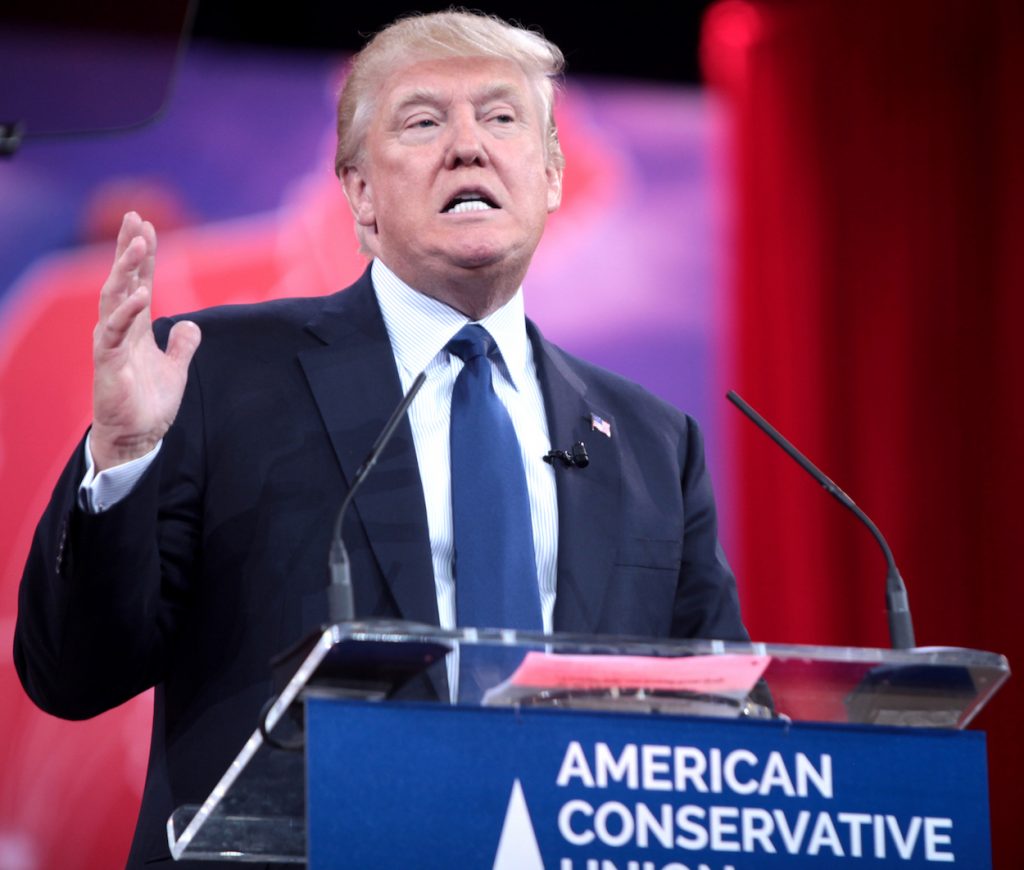by Brian Hioe
語言:
English
Photo Credit: Reuters
THE THOUGHT is a terrifying one: Terry Gou as president of Taiwan? After the election of Donald Trump in 2016 American presidential elections, it seems nothing it out of the question in global politics anymore.
Some connect Trump’s victory to global trends, as indicative of the rise of right-wing populist movements across the world, whether as seen in the success of the Brexit vote in the UK or the recent uptick in election polling that Marine Le Pen of the French National Front has received. But possibility of wealthy businessmen entering politics as Gou or Trump has been floated in numerous countries after the Trump victory, not just in Taiwan. This would be a testament to the tremendous influence of American politics on global politics.
Gou is strong advocate of closer relations between Taiwan and China, as an industrial magnate whose business enterprises are run with collusion with both the CCP and KMT. As such, because of his cross-strait business ties, Gou is sometimes seen as the quintessential Taishang. Indeed, as it is in his business interests for there to be closer ties between Taiwan and China, Gou has donated large sums of money to and campaigned for the KMT many times in the past.
 Terry Gou. Photo credit: WikiCommons
Terry Gou. Photo credit: WikiCommons
Given the hard line that the KMT has taken on cross-strait relations between Taiwan and China under chairperson Hung Hsiu-Chu, it is easy to see why Gou would seem like an ideal candidate to the deep Blue KMT diehards that currently control the party. There are indications that Hung is close to Gou, with reports that Gou’s mother lent Hung the money needed to pay the salaries of KMT party workers after the Tsai administration’s investigation into illegal KMT party assets led to a freeze on some of the party’s bank accounts. Hung may view Gou as a presidential candidate who will leave the position of chair to her, rather than become a potential threat to her power along the lines of former vice president Wu Den-yih.
Likely, those who push for a Gou candidacy expect that Gou would be appealing to the Taiwanese electorate because of his reputation as a self-made businessman, who can steer clear of establishment politics because of his ability to fund his own campaign. While some have suggested that Gou could fund a presidential run as an independent because of his wealth, this seems unlikely, given that Gou is already a political figure strongly associated with the KMT.
Some polls suggest that Gou currently polls higher than current president Tsai Ing-Wen. But the unexpected victory of Donald Trump in America despite statistical modeling and polling suggesting an easy win for Hillary Clinton should remind us not to place blind faith in polling as predicting political results. To begin with, political polls in Taiwan are notoriously unreliable, polls generally coming up with different results depending on the political background of the organization running the poll.
And if in its present moment of protracted political crisis, the KMT is banking on Gou to be the candidate which allows it to turn its political fortunes around, the KMT is severely misunderstanding something about the Taiwanese electorate. If the Trump victory may mark the beginning of a wave of wealthy businessmen entering politics or represent a resurgent right-wing globally, we do well to remember that Taiwan does not correspond to a traditional left/right division as the main political cleavage in society.
 Donald Trump. Photo credit: Gage Skidmore/CC
Donald Trump. Photo credit: Gage Skidmore/CC
Rather, society divides along the independence/unification cleavage, and the left/right political spectrum overlaps onto the independence/unification cleavage. Even if we see a resurgent global right-wing, with the more independence-leaning DPP occupying the position of Taiwan’s main center-left party and the unification-leaning KMT occupying the position of the main center-right party, that does not mean that Taiwanese voters will vote for the KMT. Indeed, with Taiwanese voters becoming increasingly independence-minded, Taiwan has bucked the regional trend in East Asia of right-wing political administrations coming to power by putting the center-left DPP in power, as observed in the overwhelming victory of the DPP in 2016 elections, with the DPP winning both the presidency and legislature.
Gou is already notorious for his strident pro-unification views, which is a mark against him from the onset. But Gou is also notorious in Taiwan as the owner of FoxConn/Hon Hai, infamous throughout the world for its oppressive labor practices against Chinese workers. FoxConn has in the past seen waves of worker suicides, seeing as workers were forced to work long hours with little rest in dangerous conditions for little pay. Gou himself seemed to care little, comparing FoxConn workers to animals. Furthermore, Gou is known for his dictatorial management style in Taiwan, including carrying out legally questionable firings among his corporate staff on the Taiwan side of FoxConn.
The flaws of the American people in electing Donald Trump president seem to be many, in literally electing a sex offender for president over who would have been the first female president. But seeing as Taiwanese have not let the KMT off the hook for shady attempts to pass trade deals with China within the relatively non-public space of the Legislative Yuan, would they really elevate someone with such a checkered background as Gou to the presidency? That seems unlikely.
With the defeat of Sean Lien in 2014 Taipei mayoral elections, Taiwanese voters already rejected a similar candidate who came from a background of extreme wealth. Despite the fact that Lien’s campaign attempted to claim that because of Lien’s wealth, he would be above the corrupting, everyday concerns of politics, Lien simply could not shed the image that he was a wealthy, spoiled princeling from a politically powerful family that was halfheartedly seeking to enter politics as if this was his claiming his birthright. Taiwanese voters, however, would not stand for this. Hence the overwhelming defeat of Lien and victory of Ko Wen-Je in 2014 Taipei mayoral elections, after a laughable campaign by Lien.
 Sean Lien while campaigning for 2014 Taipei mayoral elections. Photo credit: Sean Lien/Facebook
Sean Lien while campaigning for 2014 Taipei mayoral elections. Photo credit: Sean Lien/Facebook
The KMT already tripped over itself in 2016 elections by choosing an far-right, extreme pro-unification wing candidate as Hung Hsiu-Chu. Hung proved so unpopular as a presidential candidate with the Taiwanese public that she was later replaced by Eric Chu, though Hung would gain the standing within the party to seize the position of party chair from her failed presidential run.
The Tsai administration should be warned from becoming overconfident in its election victory, or even seeking to set up Gou as an easy opponent for Tsai to defeat in 2020 elections. That pride leads to a fall should be the lesson taken from the defeat of Hillary Clinton in 2016 presidential elections, given that the Clinton campaign hoped for Trump to become the candidate of the Republican Party to provide an easy opponent for Clinton, and consequently conducted a poor and uninspiring campaign because it was too confident that Clinton would win the presidency.
But barring such missteps by the Tsai administration, Gou would in all probability be a disastrous candidate for the KMT, not too different from Hung Hsiu-Chu. If the KMT seeks to seriously put Terry Gou forward as a presidential candidate, that would only further accentuate the party’s present political crisis.

